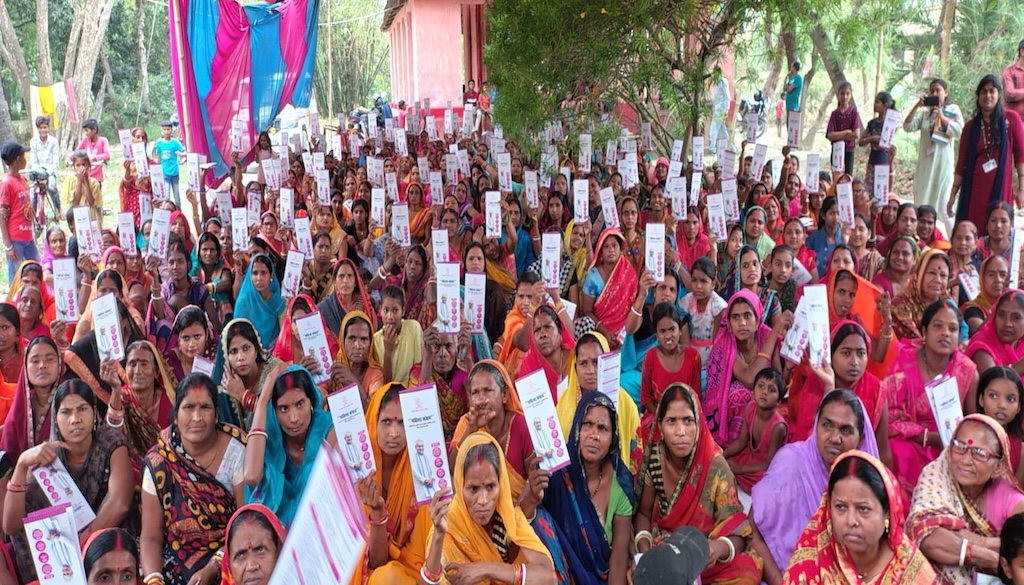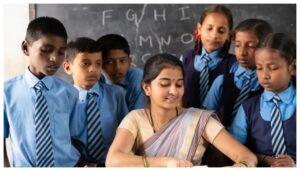
Patna: A quiet transformation is unfolding across rural Bihar. From April 18, when Chief Minister Nitish Kumar flagged off the Mahila Samvad initiative in Patna, more than 12,500 local gatherings have taken place across 534 blocks. What began as a government outreach exercise is evolving into something far more significant: a grassroots dialogue where nearly 25 lakh women have, so far, shared their stories, struggles and dreams.
By design, Mahila Samvad is more than a campaign—it’s a forum. Organised by the Bihar government and aimed at empowering women in villages and small towns, it offers a rare opportunity for women to speak directly to the state, not just about the challenges they face, but also about the futures they imagine for themselves, their families, and their communities.
At the heart of the programme are awareness vehicles fitted with digital screens. These mobile cinemas project three short films on schemes like JEEViKA, the Women’s Reservation initiative, the Chief Minister’s Girl’s Cycle Scheme, the Student Credit Card Scheme, and more. A letter from the Chief Minister addressed to the “mothers and sisters of Bihar” is also distributed to women attending the sessions—many of whom are engaging with state policies for the first time.
But what makes Mahila Samvad stand out is not just the information being shared—it’s the conversations it has sparked. Women have begun voicing their needs in remarkably specific terms. From demands for women’s police stations and sewing centres in every panchayat to aspirations for better healthcare, pink auto services, skill training hubs, playgrounds, community marriage halls, local markets for their products, and even panchayat-level libraries—the ideas pouring in reflect not only a hunger for development, but a clear sense of how it should be shaped.
The programme, part of the government’s wider vision of Viksit Sankalp (development with resolve), is slated to expand to over 70,000 locations with the goal of reaching more than two crore women across the state. And with each new day, as more women gather, speak, and listen, Mahila Samvad is fast becoming a mirror to the aspirations of Bihar’s aadhi aabadi—its half population.
In many villages, beneficiaries of existing schemes are also sharing their journeys—from economic hardship to self-reliance—with fellow women and girls, providing a human context to what might otherwise be abstract policy. It’s a form of peer learning, but also a subtle political act: a collective assertion that women’s voices, when amplified, can reshape the public agenda.
The story of Bihar’s women continues to unfold—on dusty village grounds, under banyan trees, and in bustling panchayat spaces, where the women of Bihar are finally being heard.





